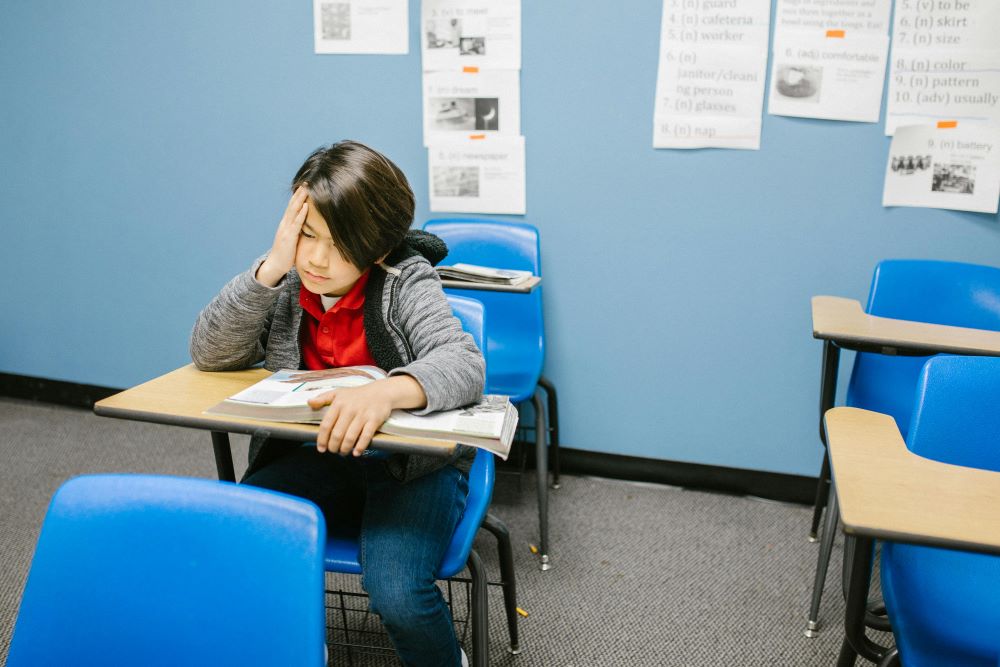The ever-increasing youth mental health crisis is taking a significant toll on families, both financially and emotionally.
In the past five years, rising expenses for mental health care have burdened American families caring for children struggling, reflecting an overall escalation in treatment costs. According to recent data spanning from 2017 to 2021, the expenses related to child mental health services have increased by approximately 31%, posing substantial challenges for households across the nation.
Published in the journal JAMA Network Open on March 11, 2024, a study led by Theoren Loo, affiliated with Brightline, a California-based company specializing in virtual mental health care for children, sheds light on the substantial financial strain endured by families in managing pediatric mental health conditions.
The study underscores the substantial financial implications associated with pediatric mental health issues within the U.S. healthcare system. The prevalence of these conditions and the demand for corresponding behavioral health services have been on the rise, mirroring alarming trends outlined in a report by U.S. Surgeon General Dr. Vivek Murthy in 2021.

Analyzing federal data on medical spending from a representative sample of American households during the period of 2017 to 2021, Loo’s team observed a significant increase in mental health diagnoses among children aged 5 to 17, surging by nearly 22% over the five-year period. By 2021, approximately one in every four American children was diagnosed with a mental health condition, totaling over 9 million children nationwide.
The financial strain on households related to child mental health services has also escalated along with rising expenses. Expenditures have increased by approximately 31%, averaging $4,361 annually per child by 2021. Moreover, the study revealed a correlation between increased spending on child mental health and a parallel rise in medical expenses for other family members, averaging $2,337. This correlation highlights the interconnectedness of caregiver and child mental health, emphasizing the need for comprehensive support systems.
The burgeoning costs associated with pediatric mental health conditions have translated into a substantial economic burden, amounting to $31 billion in child spending and $59 billion in overall household medical spending by 2021. Despite these escalating costs, the study suggests that children often receive mental health care, including psychiatric drugs and doctor’s office visits, which may not always be evidence-based or of high quality.
A concerning trend highlighted in the study is the reliance on hospital emergency departments for mental health care, indicating gaps in access to timely and preventative interventions for children. The authors stress the imperative for improved care delivery models that prioritize early intervention and evidence-based practices to mitigate the need for crisis-driven treatments.
One critical aspect affected by the rising costs is insurance coverage and reimbursement rates for mental health services. Despite legislative efforts to improve mental health parity, disparities persist in insurance coverage for mental health treatments compared to physical health conditions. High out-of-pocket expenses, co-pays, and deductibles often deter families from seeking necessary mental health services, exacerbating the gap in access to care.
Furthermore, the COVID-19 pandemic has exacerbated rising expenses and other challenges in mental health care, amplifying the demand for services while disrupting traditional care delivery models. Telehealth has become a critical lifeline for mental health support during the pandemic, yet disparities in digital access and technological literacy pose additional barriers for vulnerable populations.
The surge in medical costs for children’s mental health highlights the pressing need for enhanced support systems and interventions to alleviate the financial strain on families and ensure optimal mental health outcomes for children. Addressing these challenges demands a multifaceted approach, including improved access to evidence-based care, increased investment in preventative services, and comprehensive support networks for caregivers and families.
Sources:
Medical Costs for Kids’ Mental Health Jumped 31% in 5 Years
Costs and Reimbursements for Mental Health Hospitalizations at Children’s Hospitals


Join the conversation!